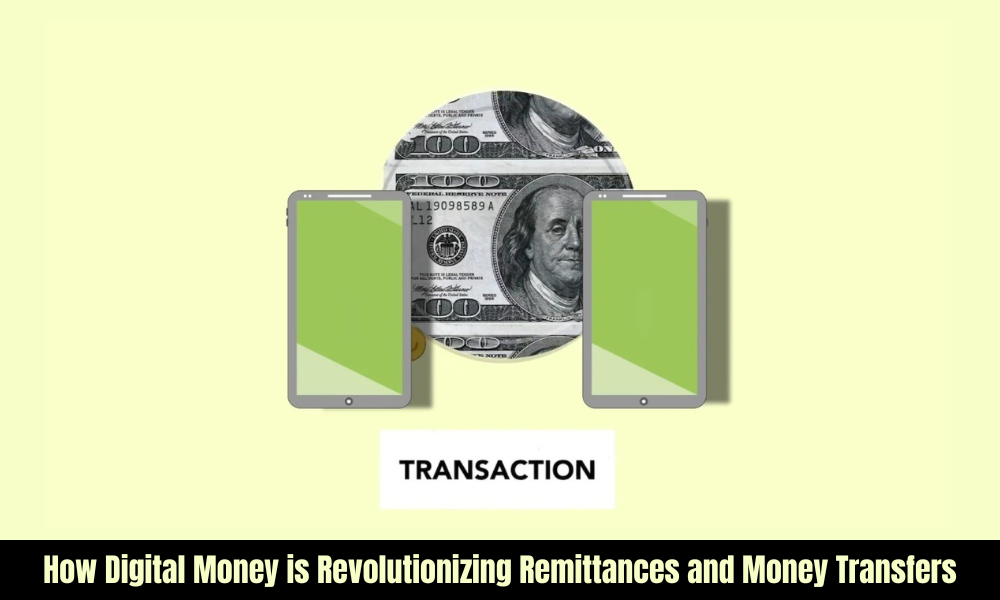Thanks to the internet and the technological innovations we humans have created over the past few years, we can now enjoy more things than we ever thought possible. Remote work makes it easier for us to strike a balance between our lives at our jobs and our lives at home. Online shopping allows us to buy whatever we want and need with just a few taps or clicks. Even sending and receiving money at any time from anywhere in the world is easier because of digital wallet applications and cryptocurrencies like Bitcoin. In this blog post, we’ll talk about how digital money is currently revolutionizing remittances and money transfers and what that means for consumers like us.
What are Remittances and Money Transfers?
Before we get into the nitty-gritty details, let us first define what remittances and money transfers are. A remittance is when a foreign worker sends money back to their home country to support their family or cover expenses like education or medical bills.
On the other hand, money transfers are a way to send funds to someone else within the same country.
The Drawbacks of Traditional Methods
For years, traditional methods like bank transfers, wire transfers, and money orders have been the go-to for remittances and money transfers. We’ve always relied on them, but we also know that they can be a royal pain in the neck sometimes.
Traditional methods often come with high fees and long processing times, which can be problematic for people who need to send money quickly and affordably.
The Advantages of Digital Money
This is where it comes in. Digital money is a form of currency that’s exchanged online and includes digital wallets like Veno, Apple Pay, and PayPal, as well as cryptocurrencies like Bitcoin.
One of the biggest advantages of digital money is speed—transfers can be completed in just a few minutes, compared to the several days or weeks that traditional methods can take. Plus, digital money transfers often come with lower fees, which means people can send money to their loved ones without losing a large percentage of it to fees!
Even better, these features and benefits of digital money are more accessible than traditional banking services. Many people in developing countries don’t have access to banks, but they do have access to smartphones and the Internet. Digital wallets can be accessed through an app, which makes it easier for people to send and receive money.
How Digital Money is Revolutionizing the Remittances and Money Transfers Game
Now, let’s talk about how digital money is currently (and effectively) changing this landscape.
Ease of Use
First, it makes it easier for people to receive and send money across borders. Traditional methods often require the sender to go to a bank or money transfer service physically, but with digital money, transfers can be made anywhere in the world.
Affordability
Digital money is also making remittances and money transfers more affordable. Lower fees mean people can send more money to their loved ones without worrying about losing much of it to fees. Plus, digital money is helping to reduce the dependence on cash in developing countries, which can easily be lost or stolen. It provides a safer and more convenient alternative to cash.
Security
Digital money is making remittances and money transfers more secure. Cryptocurrency transactions are encrypted and decentralized, which makes them less vulnerable to fraud and hacking. Furthermore, digital wallets like PayPal and Venmo offer security features like two-factor authentication, which makes it more difficult for unauthorized users to access an account.
Empowerment of Small Businesses and Freelancers
For small businesses and freelancers, receiving payments from clients in different countries can be complex and expensive. Traditional payment methods often involve high fees, long processing times, and the need for intermediaries like banks or payment processors. But, with digital money, payments can be made directly from one wallet to another, without the need for intermediaries. This makes the process faster, cheaper, and more transparent, allowing small businesses and freelancers to focus on their work and grow their businesses.
Easy Tracking of Transactions
With digital wallets and cryptocurrencies, people can easily track their transactions and keep a record of their financial history. This can be useful for tax purposes or when applying for loans, as it provides a clear and transparent picture of one’s financial situation. Additionally, some digital wallets offer features like budgeting tools, which can help people manage their finances more effectively and avoid overspending.
Reduced Time and Costs Associated with Compliance and Regulatory Requirements
When it comes to money transfers, compliance, and regulatory requirements can be complex and time-consuming. However, with digital money, identification, and verification processes can be faster and more efficient. For example, some digital wallets use biometric authentication, such as facial recognition or fingerprint scanning, to verify users’ identities. This not only saves time but also reduces the risk of fraud or identity theft.
Conclusion
As you may have noticed, digital money is revolutionizing remittances and transfers by offering a range of benefits that traditional methods simply can’t match.
With all the benefits and advantages listed above, digital money is truly changing the way we send and receive money. Whether you’re a foreign worker sending money back to the people you love or someone sending money to a friend or relative within the same country, digital money is the game-changer you should give a try if you haven’t yet.
For more insightful articles about technology, digital marketing, news, and business, check out Digital Point Pro today!














